Man Gets Bashed Online For Not Wanting To Pay For Roommate’s Shoes Which His Dog Chewed
Dogs like to explore the world by frequently chewing on objects, as chewing serves a variety of purposes for them. It is a means of relieving pain in young dogs that may be caused by incoming teeth.
It's nature's way of keeping the jaws of older dogs strong and their teeth clean. Additionally, chewing prevents boredom and alleviates moderate tension or frustration.
Many dog owners eventually come home to discover some unanticipated damage caused by their dog, or more specifically, their dog's teeth, to their shoes, furniture, or other belongings. Although dogs use their vision and sense of smell to explore the world extensively, their mouths are one of their preferred methods for learning new things.
Fortunately, chewing can be directed toward appropriate items so that your dog doesn't endanger its own safety or damage things you love. The dog in today’s story is at the stage where she chews on everything.
The OP buys "her toys and uses a bitter spray to try and get her to stop chewing on things." Did that work? No, as the dog continued to chew on things, including items belonging to his roommates.
On one occasion, the dog chewed a shoe, and the OP is now asking if he would be wrong for not wanting to pay for the shoe because the roommate didn’t put it away.
Dogs chew things, but who is going to provide a new one?

This Redditor's dog chews on anything she can get her paws on
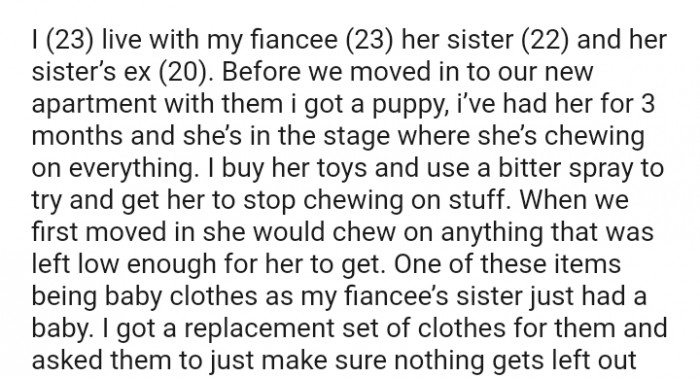
Now, the dog has chewed a shoe that belongs to the OP's sister's ex

The Psychology of Responsibility and Ownership
In this case, we see an interesting dynamic in shared living situations where expectations about responsibility can lead to conflict.
According to research in social psychology, individuals often have differing perceptions of ownership and responsibility, which can create friction in communal living arrangements.
Understanding these dynamics is crucial for fostering harmony among housemates.
And the comments roll in...
1. Training your dog is the right approach
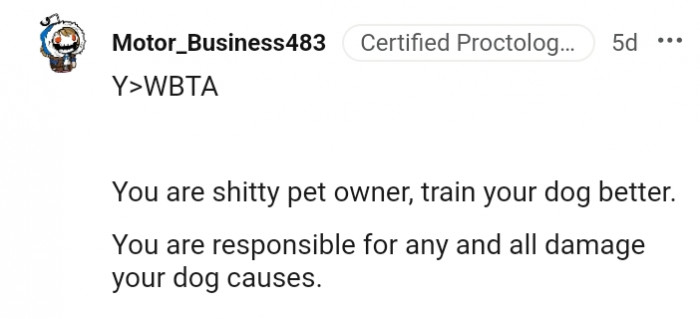
2. Your dog actually destroyed someone else's property

3. Dogs require constant supervision
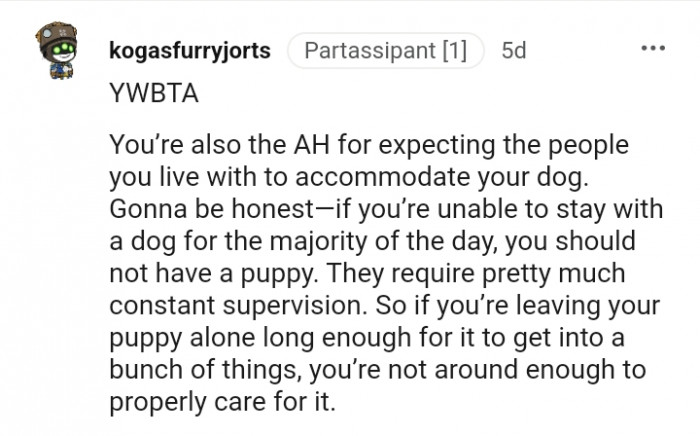
The roommate's reluctance to accept responsibility for the damaged property likely stems from a psychological phenomenon known as external attribution.
Studies show that individuals often attribute negative outcomes to external factors rather than their own actions, especially in high-stress situations.
4. This Redditor just needs some additional information
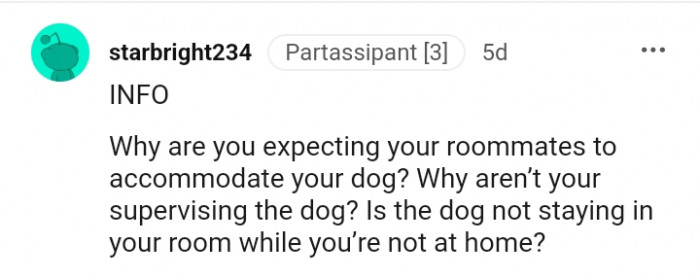
5. The OP is expected to replace the shoes

6. You shouldn't leave a dog in a crate for that long
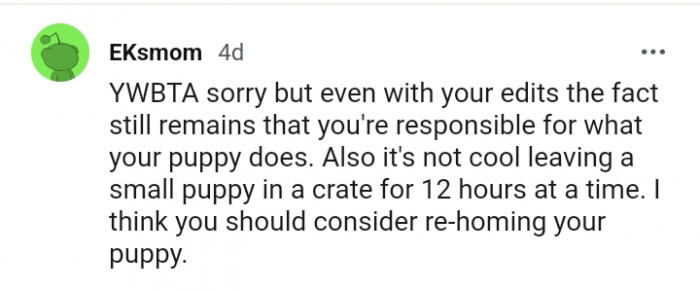
Navigating Shared Spaces
This scenario highlights the challenges of shared living spaces and the importance of establishing clear agreements about responsibilities.
Research in conflict resolution emphasizes that having open discussions about expectations can significantly reduce misunderstandings.
Setting clear boundaries and responsibilities can create a more harmonious living environment.
7. The best solution here is to lock the crate
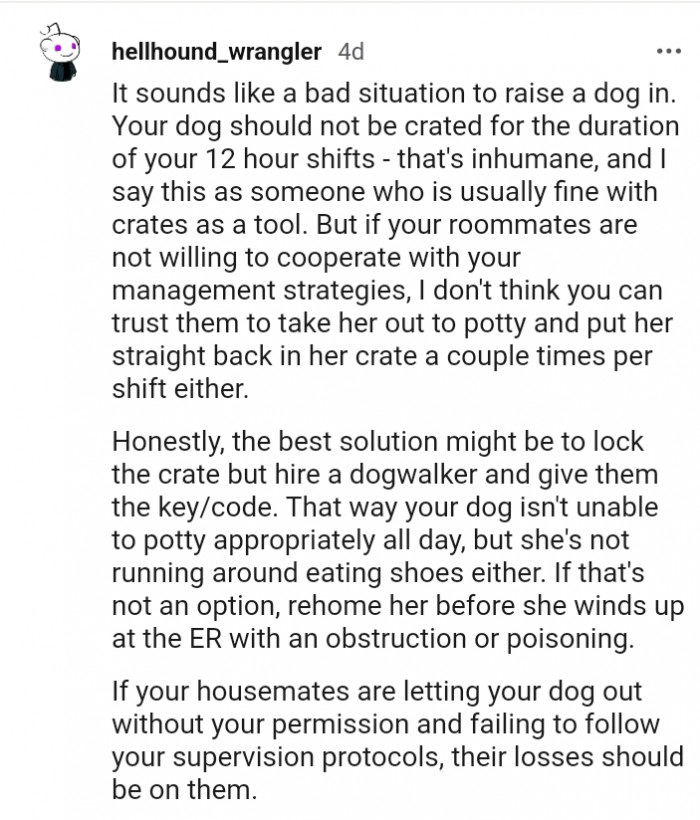
8. The OP should reconsider ownership

9. You should kennel the dog since it can't roam without chewing things
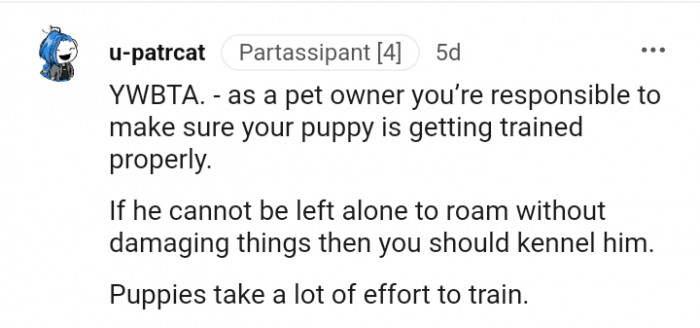
To address the issue of responsibility, housemates may benefit from implementing a system for shared tasks and responsibilities.
According to studies in group dynamics, collaborative approaches to managing shared spaces can enhance cooperation and reduce conflict.
Regular check-ins to discuss responsibilities can also help maintain accountability while fostering a sense of community.
10. The OP is asking them to accommodate the dog
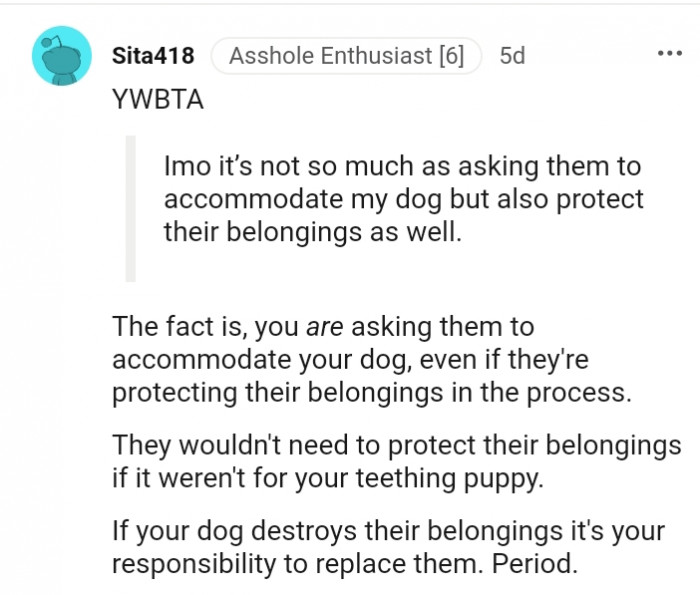
The first edit the OP added in addition to the story

11. Why can't the OP keep the pet inside?
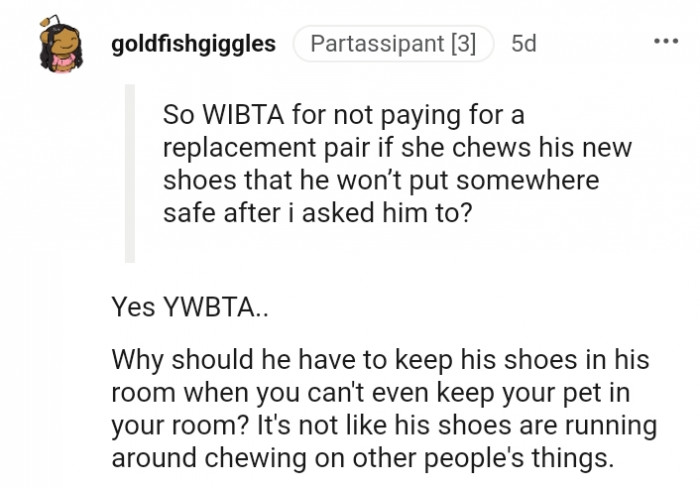
Understanding Emotional Responses
This situation also reflects emotional dysregulation, where the individual's stress response is heightened due to perceived unfairness.
Research indicates that emotional dysregulation can lead to disproportionate responses in conflict situations, making resolution more challenging.
Recognizing the signs of emotional overwhelm can help individuals manage their reactions more effectively.
12. The OP needs to compensate for the damage

13. Is it the right time for the OP to get a puppy?
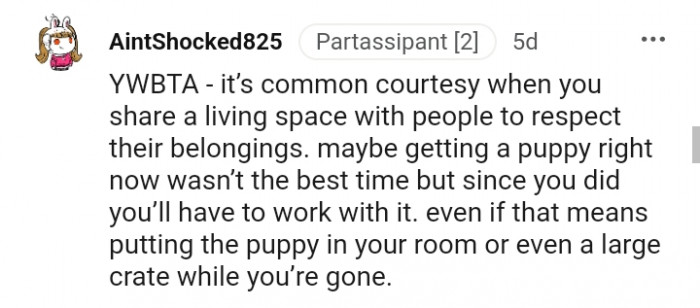
14. The OP should pay for the recent shoe loss
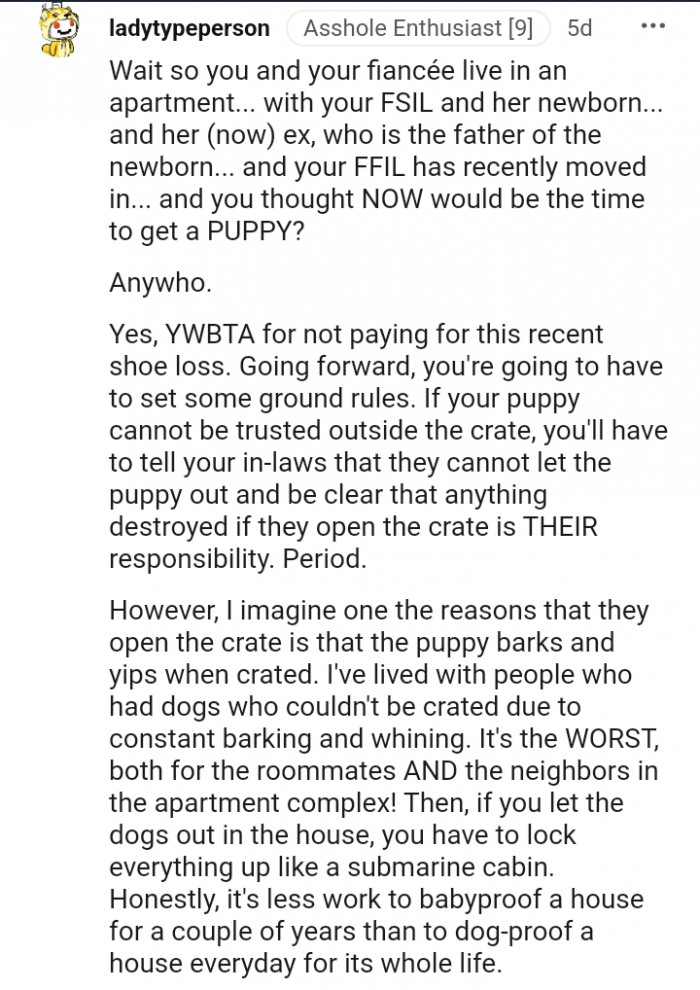
Ultimately, resolving conflicts in shared living situations requires empathy and a willingness to understand each other's perspectives.
As highlighted in relational psychology literature, approaching conflicts with curiosity and a desire to understand can lead to more constructive outcomes.
15. The OP is asking for people to read the edits
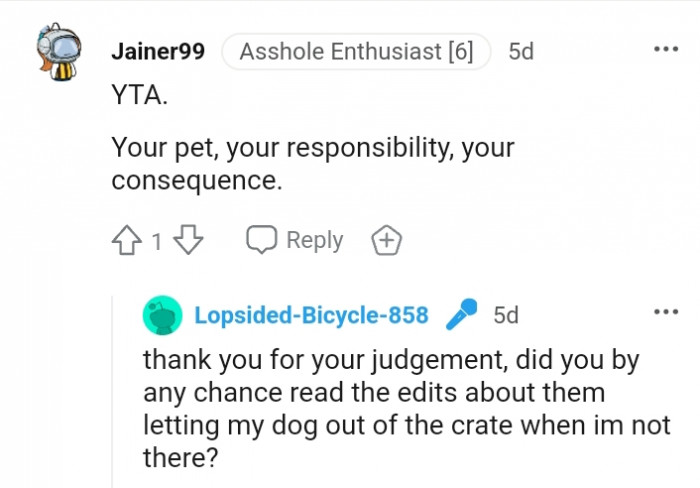
16. The OP has made accommodations
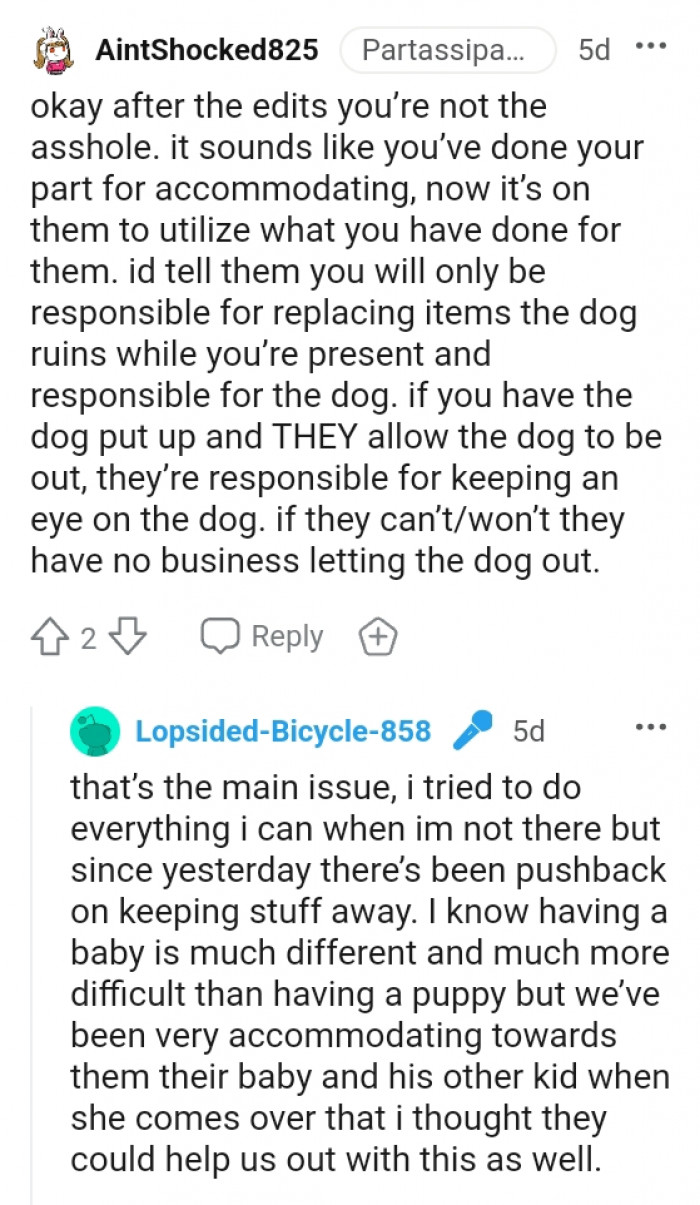
17. The OP sounds like a terrible dog owner

18. Basic tidying is just the bare minimum
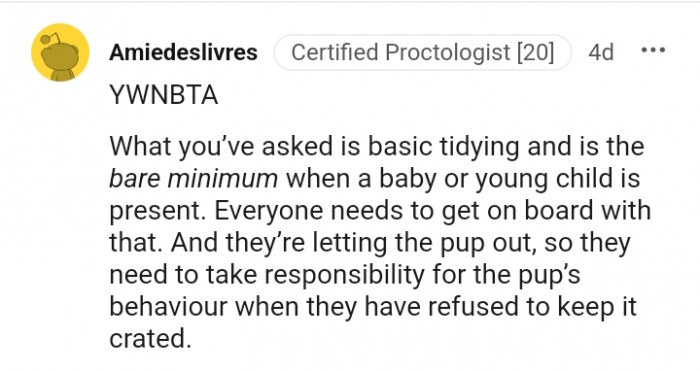
19. The OP is accused of trying to twist the arguments
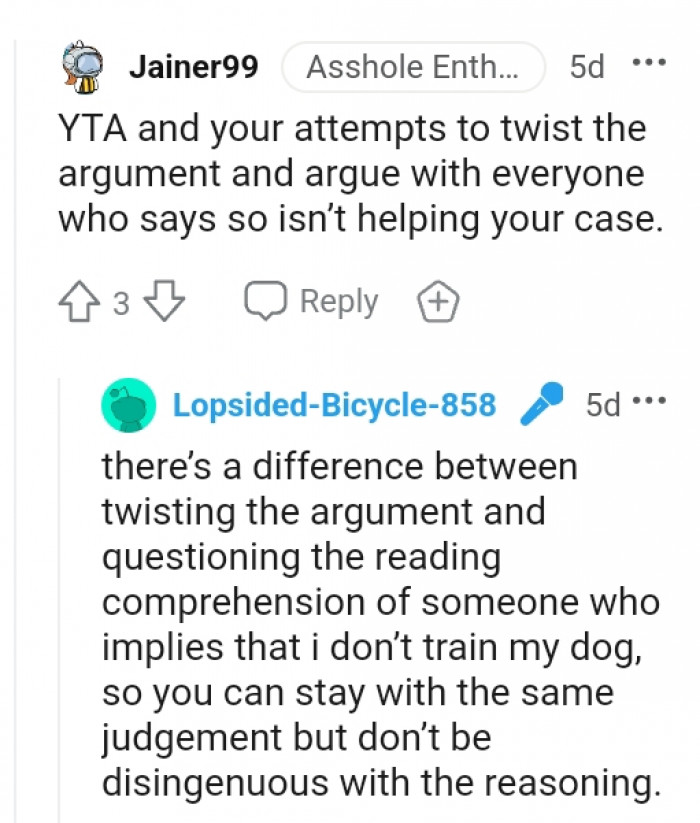
20. The OP has to pay for all the damages caused by the dog

This is the second edit the OP added later on
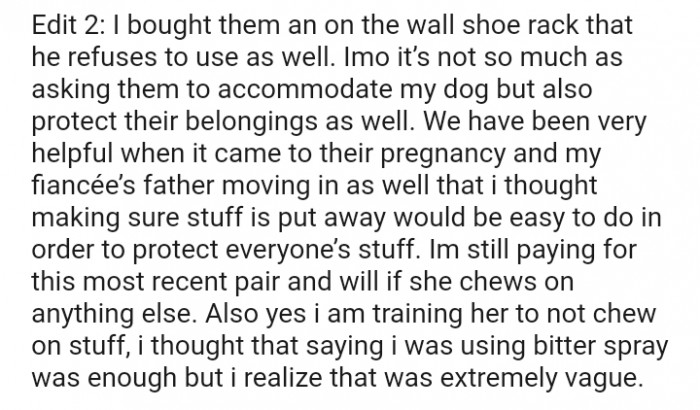
Most dogs chew, whether we like it or not. No matter how much we try to stop them, they will eventually start chewing on something.
So it’s better to start training them on time before they chew the house down. Please let us know your thoughts about this story by leaving a comment below.
Psychological Analysis
This situation illustrates common challenges in shared living environments, particularly around issues of responsibility and accountability.
From a psychological perspective, addressing these conflicts requires open communication and a willingness to understand differing viewpoints to promote cooperation and harmony.
Analysis generated by AI
Analysis & Alternative Approaches
This scenario underscores the complexities of shared living arrangements and the psychological factors at play in conflict resolution.
Research supports the notion that clear communication and established boundaries are essential for maintaining harmony in communal spaces.



